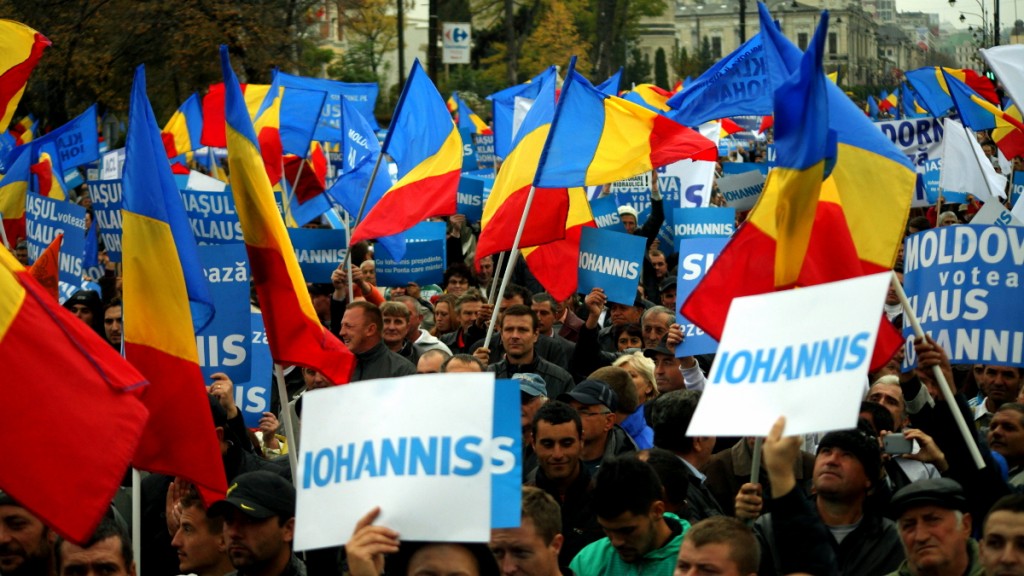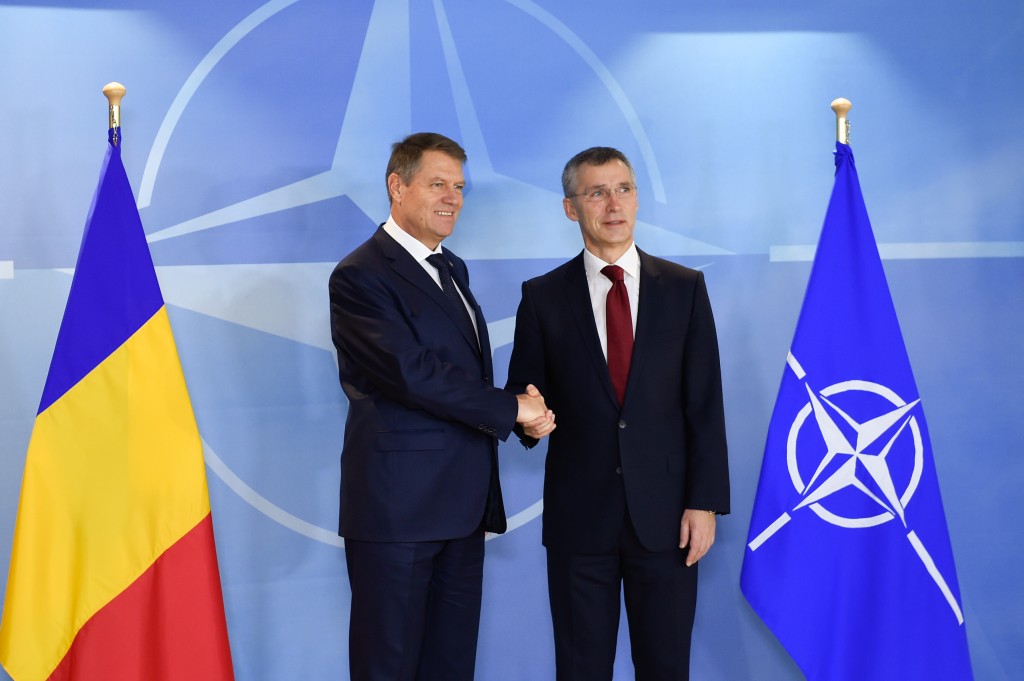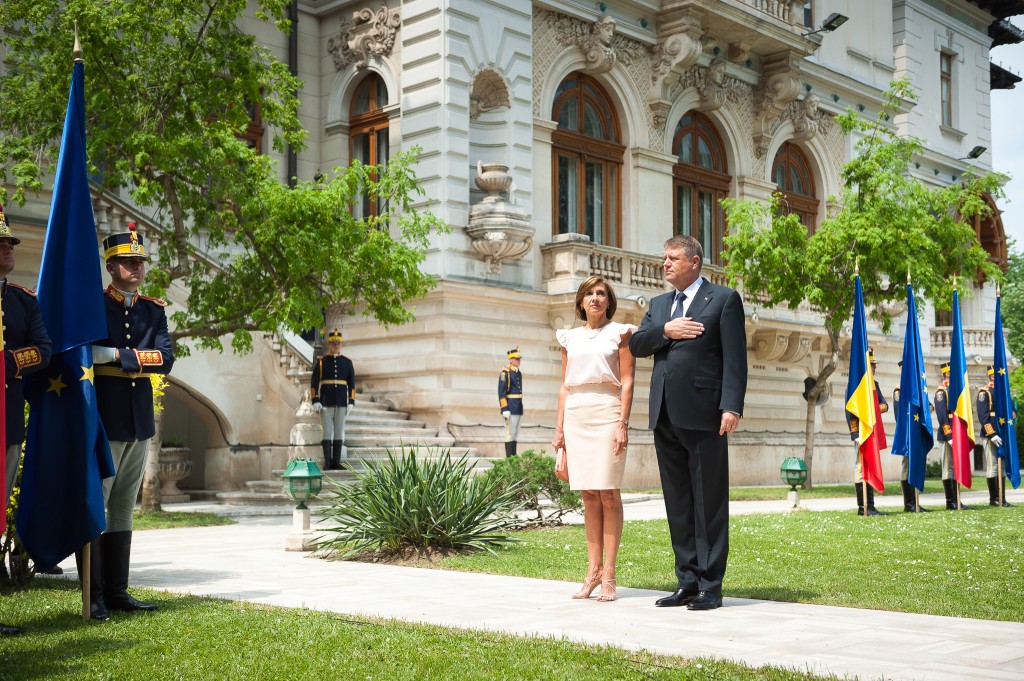Klaus Ioha nnis’ election was seen by many to signal a shift from the ‘old’ corrupt ways of doing politics in Romania and a historical moment that would mark the start of deep processes of transformation in Romanian politics and society. He offered the promise of making politics more efficient and less driven by short term, narrow interests of corrupt politicians. What is left of these hopes after his first six months in office?, asks Dr Cristian Nitoiu.
nnis’ election was seen by many to signal a shift from the ‘old’ corrupt ways of doing politics in Romania and a historical moment that would mark the start of deep processes of transformation in Romanian politics and society. He offered the promise of making politics more efficient and less driven by short term, narrow interests of corrupt politicians. What is left of these hopes after his first six months in office?, asks Dr Cristian Nitoiu.

Much of President Iohannis’attention has been focused on the fight against corruption, or assuring the independence and autonomy of the justice system. His approach has been based on the overwhelming support of the Romanian public opinion for strengthening the justice system and curbing corruption at the all levels of politics and society. In turn, practical results have been impressive. Almost every day new corrupt politicians or businessmen have been investigated or convicted.
In this background foreign policy has become a marginal, if not the least important priority for Iohannis. This is very surprising: in Romania’s constitutional system the most important policymaking and agenda-setting powers of the President lie precisely in this area. In contrast to his firm stance on corruption, in external relations he has been almost absent, showing signs of a lack of strategy, vision and aspirations. His main achievement has been a long series of meeting with foreign officials in which he alluded abstractly to Romania’s general commitment to coordinate foreign policy through the common framework of the EU or in partnership with the US.
“Enhanced relations” mean passive outsourcing of foreign policy
In practice, “enhancing” the strategic relationship with the US or Romania’s commitment to EU values has translated into outsourcing the country’s foreign policy to the US or EU. Romania’s national interests have been equivalent to acting as a proxy for the country’s Western partners. For example, president Iohannis has been a fervent supporter of TTIP, and he followed the US’ strong line of Russia, while showing unconditional support for the new government in Ukraine and the EU’s policy towards Kyiv.
Meanwhile, President Iohannis has given no indication of the way he sees Romania’s own contribution to the EU’s foreign policy or the strategic partnership with US – and how these relationships might serve Romania’s national interest.
Iohannis’ approach differs from those used in the past. Previous governments and presidents had their own visions and strategies for foreign affairs, even if not always the most suitable ones or not pursued in the most appropriate way. For example, in the first months of his first term former president Băsescu devised a strategy which aimed to make Romania the EU’s main bridge and actor in the Black Sea region. The organization of the 2008 NATO in Bucharest was to that extent recognition of Romania’s strategy and aspirations. In the end, Băsescu sought to put this strategy into practice unilaterally which alienated both the countries in the Black Sea region and the other member states, leaving Romania to lose its credibility as the primary EU actor in the region.
On the other hand, outsourcing foreign policy has a long tradition, not only in Romania but also across the region. In Romania leaders have chosen this path not because of lack of vision or strategy, but more as a way of legitimising themselves and their corrupt rule of the country via good relations with Western leaders. They happily followed the cues of the US or the EU, hoping that the West would turn a blind eye to their corrupt way of doing politics.

So why Iohannis outsources Romania’s foreign policy?
Given his focus on the fight against corruption, securing the West’s support for his (potentially corrupt) regime can be ruled out as a reason behind the fact that President Iohannis is outsourcing foreign policy.
Several other factors are more plausible:
- Iohannis lacks expertise on foreign policy and is taking his time to understand world politics until he comes up with a clear strategy, vision and set of aspirations. By outsourcing foreign policy to the EU or the US he seeks to play on the safe side, fearing that developing his own initiatives at this stage might be premature and have negative results.
- He is following unconditionally the cues of the EU (especially Germany) and US in order to secure their support for his efforts to modernise Romania and fight against corruption.
- His foreign policy advisors might be recommending him to do so. Even though Iohannis represents a promise of change in Romanian politics, his advisors are people who have been in leading positions in Romania since the 1990s. Inertia might explain why his advisors tend to stick with the policy of outsourcing, even though, at least theoretically, they do not represent politicians who thrive on corruption and need support from the West.
- Iohannis might not think that foreign policy is of much importance and not listen to his advisers even if they show initiative or vision.
- President Iohannis might be faced with stiff opposition from the current foreign policy bureaucracy which is still dominated by the Socialist party. Key bureaucrats in Romania’s diplomacy might be undermining President Iohannis’ aspirations and initiatives in foreign policy.
- Finally, Iohannis started his presidency in a period of intense turmoil – both in Eastern Europe, but also globally. The realisation of this fact might make the president consider that inactivity and outsourcing foreign policy is the right strategy in the short term.

No more time to waste – Iohannis needs to act
However, there is no more time for acting in the absence of a clear strategic approach to foreign policy. Accepting the US and the EU’s whole foreign policy menu without reflecting on them or developing Romania’s own initiates is not viable. Failure to deliver on the promise of changing the face of Romanian politics by bringing in new ideas and people — also in the area of foreign policy! — will probably result in Iohannis losing credibility in Romania, but also in the international arena.
Iohannis’ inactivity has already been noticed by the governing party, with Prime Minister Ponta increasingly acting in foreign policy without consulting the president. Ponta is scoring points for showing initiative in foreign policy through discussing beneficial economic deals with China or the Gulf states. This has the potential to leave Iohannis outside of the loop for the remainder of his term.
Time is also short for Iohannis as there is a number of pressing regional and global issues concerning Romania. These include the decreasing level of democratic governance in Moldova, Romania’s position as an energy producer in the EU’s energy strategy, the Ukraine crisis, Russia’s increasing naval power in the Black sea, or the EU’s deteriorating relations with Turkey.
In most of these cases the US and the EU seem not to have very well-defined foreign policy strategies or the willingness to act. Outsourcing in this case might prove to be a very dangerous approach. Hence, president Iohannis will have sooner rather than later to devise a clear strategy which doesn’t rely solely on outsourcing the country’s foreign policy. Willing to succeed, he will have to show the same level of initiative and determination in foreign policy as he has done the fight against corruption.
Note: This article gives the views of the authors, and not the position of LSEE Research on SEE, nor of the London School of Economics.
_______________________
Dr. Cristian Nitoiu is a Postdoctoral Fellow in EU-Russia relations at LSE IDEAS, a fellow of the Dahrendorf Project by the Hertie School of Governance, LSE and Stiftung Mercator.
Before this he held research positions at Trinity College Dublin and the College of Europe (Natolin campus, ENP Chair). His book on ‘EU Foreign Policy Analysis: Democratic Legitimacy, Media, and Climate Change’ will be published in June by Palgrave. He is currently working on a book on EU-Russia relations during Putin’s term, and another on change and continuity in Romania’s foreign policy since the country’s accession to the EU.


